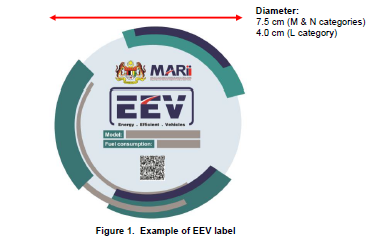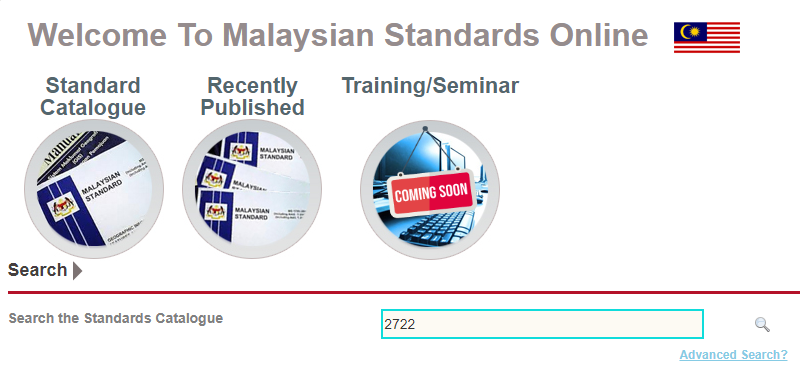NOTE:
On July 27, 2022, Malaysia began to solicit opinions on proposed enhancements to CO2 emission regulations for road vehicles. See more details in the following:
Malaysia to Consider Mandatory Labeling of Carbon Emissions for Road Vehicles
On May 18, 2021, the Department of Standards of Malaysia released a Malaysian Standard “Energy efficient vehicle (EEV)-Requirements” (MS 2722:2021) that specifies the fuel consumption requirements for energy efficient vehicle (EEV). In February 2020, Malaysia announced the National Automotive Policy 2020 (NAP 2020) with the aim of developing the local automotive industry over the next 10 years. This NAP 2020 includes the National Automotive Vision to strengthen the capacity of automotive industry, combating protectionism in the global automotive industry and making the automotive industry a major contributor to the development of Malaysia’s economy. This Malaysian Standard was developed against a backdrop of these policy developments and has the following three objectives.
- to complement the implementation of NAP 2020
- to reduce the carbon emission emitted from vehicles
- to increase the awareness on exhaust emission and fuel consumption
This is a voluntary standard and not legally enforceable.
Overview of MS 2722:2021 on EEV requirements
Scope of application
Motor vehicle categories (L, M and N) as classified in MS 1822
Definition of energy efficient vehicle (EEV)
Vehicles that meet a set of specification for CO2 emissions (gCO2/km) and fuel consumption (L/100km) are regarded as EEV based on the standard, including fuel-efficient internal combustion engine (ICE) vehicle, hybrid vehicle, electric vehicle (EV) and alternative fuel vehicle such as compressed natural gas (CNG), liquefied petroleum gas (LPG), biodiesel, ethanol, hydrogen and fuel cell.
Energy efficient vehicle (EEV) limits
This standard sets out several EEV certification standards. As an example, the EEV fuel consumption limits based on kerb weight are shown in the table below.
| Kerb Weight (kg) | Fuel Consumption Limits (L/100km) |
|---|---|
| <800 | 4.5 |
| 801-1000 | 5.0 |
| 1001-1250 | 6.0 |
| 1251-1400 | 6.5 |
| 1401-1550 | 7.0 |
| 1551-1800 | 9.5 |
| 1801-2050 | 11.0 |
| 2051-2350 | 11.5 |
| 2351-2500 | 12.0 |
| 2501-2750 | 13.5 |
| 2751-3000 | 14.7 |
| 3001-3250 | 16.0 |
| 3251-3500 | 17.2 |
On the other hand, electric vehicles (EVs) are automatically regarded as EEVs.
EEV label
The competent authority in Malaysia issues the EEV certificate. And, vehicles approved as EEV by the competent authority can be marked with the EEV label shown below.

This standard (45 RM) can be purchased at the following URL.
https://www.jsm.gov.my/web/msonline
Typing “2722” in the search box on that page will take you to the purchase page for this standard.

 Malaysia issues standard for energy efficient vehicle certificate
Malaysia issues standard for energy efficient vehicle certificate 

























